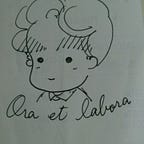Fragments on Peak and Plateau Experience
Peak and plateau experience is a term coined by Maslow. The plateau experience comes because of old age and follows the peak experiences.
The peak experience has certain elements, such as awe, mystery, surprise, and esthetic shock, in common with the plateau experience. However, the former is climactic and the latter constant. The peak experience has ups and downs, is sudden and unexpected, and has much influence on our systems, while the plateau experience is just ordinary, capable of occurring every day, felt serene like Carl Hilty described in his fragmentary diary, and calming.
It seems Maslow thought that the plateau experience is an object of a mere enjoyment, in which point Hilty differed. Hilty believed that the plateau experience is something in which we find some sort of mission to accomplish; it’s not just to be enjoyed.
Maslow said that the plateau experience is very akin to that of Zen Buddhism, but it seems to me that the idea of visions which Maslow referred to is more akin to Pure Land Buddhism than Zen. In Zen tradition, visions are usually dismissed and regarded as a place where demons reside, whereas in Pure Land Buddhism practitioners are encouraged and trained to see the vision of Pure Land and Buddhas there.
Maslow said that he could have a vision whenever he wished. It is voluntary and, in this sense, similar to that seen by Honen, one of the most renoun Pure Land Buddhist in Kamakura period in Japan. On the other hand, Hilty thought a vision is the grace of God. You cannot have one at will.
…To Be Continues :)
